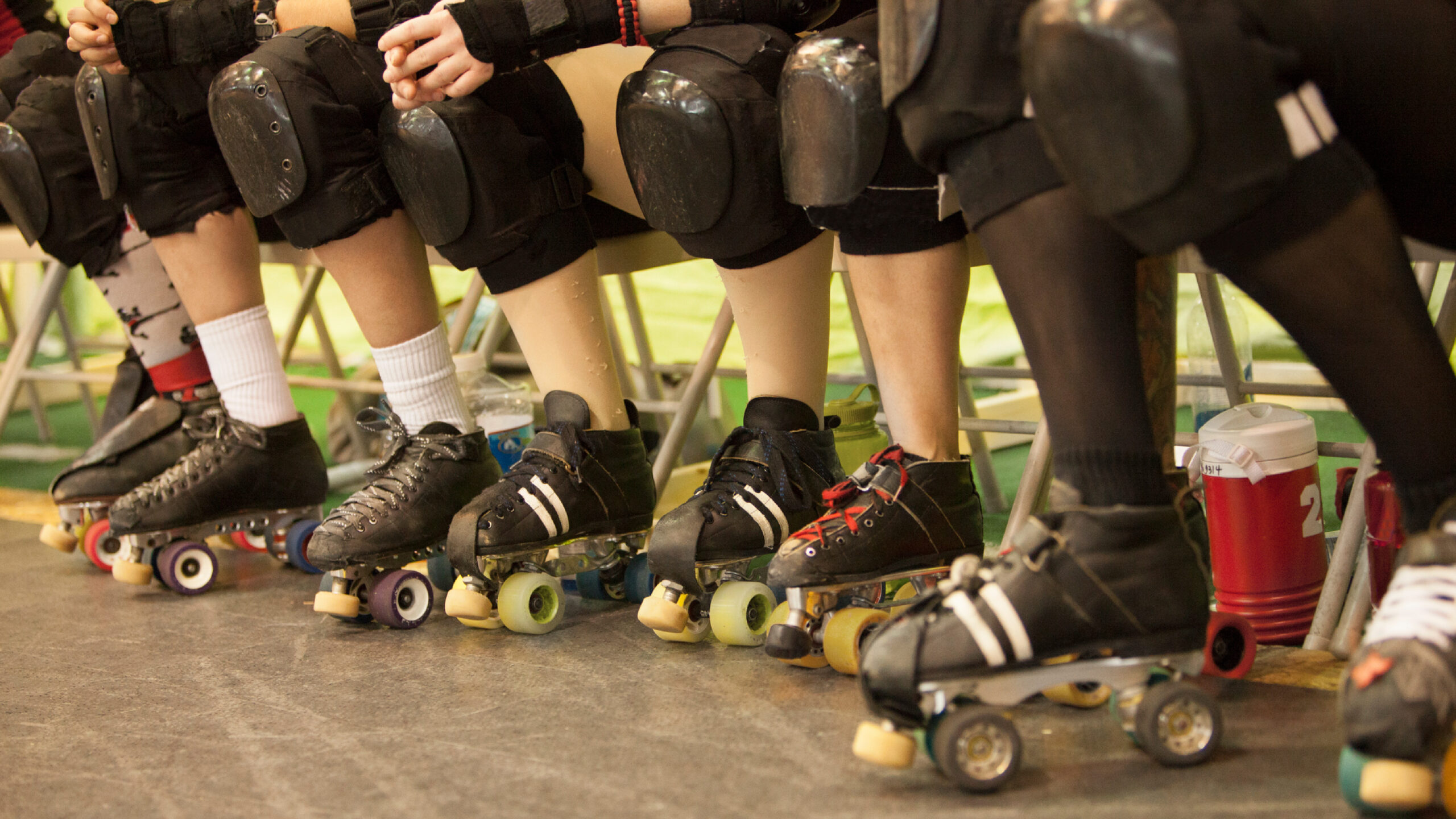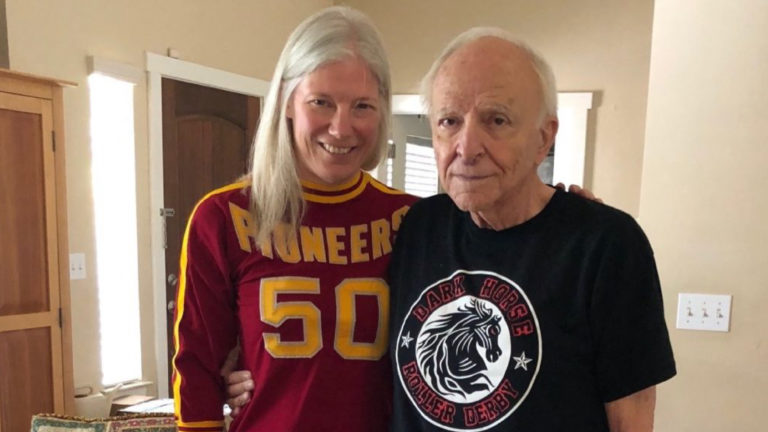The Huddle: Roller Derby in a Pandemic
Why this matters
Devoney Looser is professor, author, and roller derby athlete. She joins The Huddle to discuss how roller derby can empower athletes and teach them about strength, inclusivity, and community.
Devoney Looser has many titles. She’s a Guggenheim Fellow, NEH Public Scholar, author, Foundation Professor of English at Arizona State University, and Stone Cold Jane Austen.
The last one is the moniker that Looser adopts when she competes with her local roller derby team, the Arizona Derby Dames.
Roller derby was invented in 1935 by Leo Seltzer, an American event promoter. The game is widely regarded as the first full-contact sport played by women. Female athletes demonstrated strength, power, and aggression, all of which had been attributed to their male counterparts. It shook the American consciousness and captivated audiences around the world.
The game has experienced drastic fluctuations in its popularity since its inception. In 2001, roller derby was modernized and reborn in Austin, Texas.
“It really came back as a do it yourself, women’s empowerment sport. There was a movement to make community based leagues run by the skaters for the skaters,” Looser says. “It was really an experiment not only in recreating a sport with a new more legitimate rule set, but also a new organization for how international sport might look.”
Roller derby’s accessibility has allowed it to transcend local, national, and international barriers. There is no particular body shape or size that advantages a roller derby athlete. Flat track competitions can take place anywhere from fairgrounds to basketball courts. Trendy videos on TikTok have sparked worldwide interest in roller skating and the game itself.
Looser also mentions that the uniqueness of the sport adds appeal. “When the sport came back, it was really a countercultural, outlier sport,” she says. “The sense was if you don’t belong in other places, this is a place you could belong in.”
Modern roller derby culture has been known for accepting and advocating for non-binary, transgender, and gender nonconforming athletes. Looser says that while there are still many athletes who do not identify as a feminist or activist, the community and the ethos of the sport empower players to reclaim their space in every aspect of life.
However, roller derby has not been as inclusive when it comes to race. Athletes of color are notably absent in the majority of rosters. “Most leagues and most forms of roller derby played say if you identify as a woman, you may play as a woman,” Looser says. “In terms of paying attention to race, there has been a whole lot less progressives and appropriate attention.”
Just like the rest of the sports world, roller derby is having a reckoning with racism and inequality in the midst of a hiatus. Looser says that the roller derby community is committed to making a change. At last year’s International WFTDA Championships, Team Indigenous competed against Jewish Roller Derby. Looser says it was one of the most important games she had ever witnessed.
“Their shirts said, ‘We are still here,’” she says. “[They were] wanting to call attention to the ways that all of us need to understand how race has centralized and formed and needs to be reimagined in sport.”
It is time for every aspect of sports to be reimagined. Roller derby is unique in the way it challenges the status quo about gender, sexuality, identity, and community. The pandemic is certainly challenge the sport, but if its history has taught us anything, it will bounce back better than ever.
Listen and subscribe to the Global Sport Matters podcast:
Monthly Issue
COVID-19 & Sport
COVID-19 is the rival no one in sport could game plan for. As many live events remain at a standstill and the world keeps adapting, how is sport resetting upon its staggered returns?



